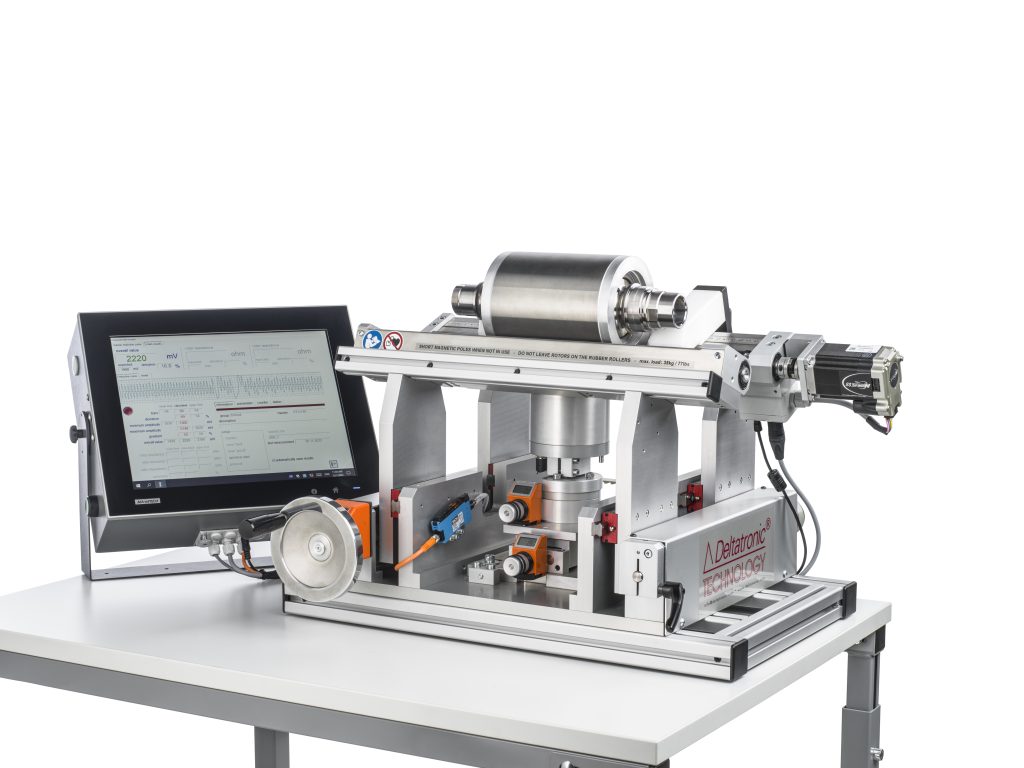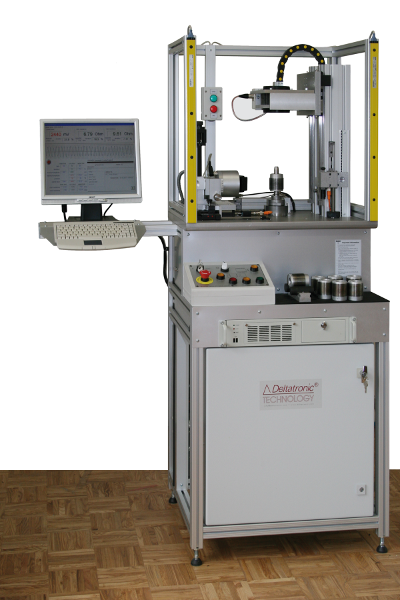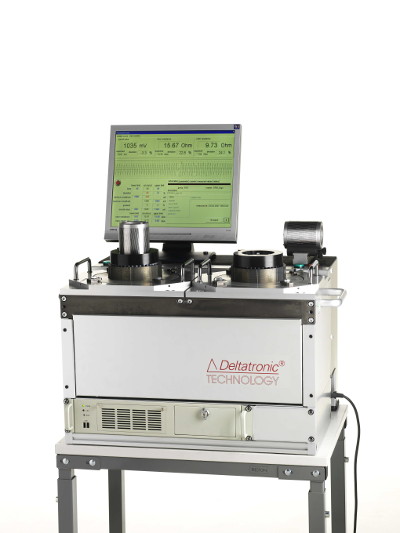
Rotor Quality Analyzer
The RQA 300/ITS-3 Rotor Quality Analyzer is a computer controlled testing system applying most advanced evaluation technique for rotor quality control in an industrial environment. This unique desktop test system is especially designed for quality control of medium and large size rotors in manufacturing and maintenance of squirrel cage induction motors.
Features:
- Approved testing technology for die cast rotors.
- Fully automatic test and evaluation based on preprogrammed tolerances.
- For testing of a wide range of rotor sizes with no need of special tooling.
- For testing of rotors with and without shaft, thus preventing additional product cost in case of poor rotor quality.
- Quick and easy adaption to different rotor type and sizes.
- Ease of loading with adjustable rotor guides.
- Cycle time approx. 6 sec. enables 100% test of production lots.
- Unlimited storage for Master Parameter Files for different rotors.
- Possibility to connect to LAN system for saving data and statistical evaluation.
- RQA-Win Software for Windows® with extensive package for statistics and zoom.
Detectable faults:
-
Broken or interrupted rotor bars.
-
Cold soldered or missing connection between bar and end ring.
-
Porosity either in the end rings or the rotor bars due to faulty injection processes, inferior aluminum alloy quality, and/or gaseous contamination.
-
Insufficient oxidation between aluminum rotor bar and steel core resulting in the phenomenon known as soldering.
-
Deviation of the rotor bar angle (skew).
-
A short circuit between two or more rotor bars (fining).
For more information please contact us.


 Rotor Quality Analyzer
Rotor Quality Analyzer